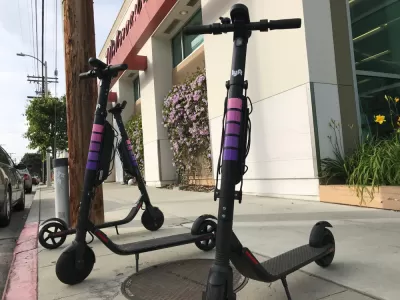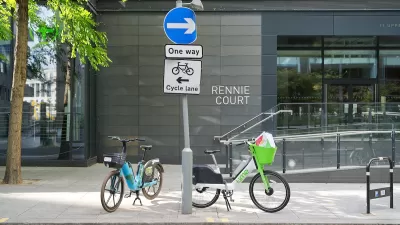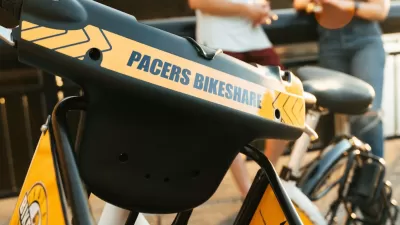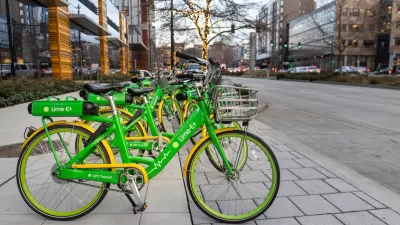The company will no longer provide shared bikes and scooters in the L.A. region, citing a ‘lack of longterm commitment’ from cities.

Lyft announced its decision to remove its shared bicycles and scooters from the Los Angeles region, saying its operations were stymied by short-term contracts and multiple operators. Matthew Hall reports on the story for the Santa Monica Daily Press.
According to Lyft, “experiences in multiple North American markets has reinforced a belief that micromobility (scooters and bikes) should be run through long term public-private partnerships with a limited number of operators.”
After becoming the first city in Los Angeles County to launch a public bike share system, Santa Monica nixed Breeze Bike Share in November 2020, citing low ridership and the availability of other shared mobility services. Since then, the city has regulated shared micromobility through an “extended pilot program” that permitted four companies to operate in its jurisdiction. The city plans to establish a longer-term contract with two operators beginning in 2023.
In the meantime, Santa Monica’s remaining three operators will continue to provide e-bike and scooter devices. The city of Los Angeles operates its own Metro Bike Share fleet, which offers bikes at stations along the rail that runs from downtown Los Angeles to Santa Monica.
FULL STORY: Lyft withdraws bikes/scooters from Los Angeles

Alabama: Trump Terminates Settlements for Black Communities Harmed By Raw Sewage
Trump deemed the landmark civil rights agreement “illegal DEI and environmental justice policy.”

Planetizen Federal Action Tracker
A weekly monitor of how Trump’s orders and actions are impacting planners and planning in America.

Why Should We Subsidize Public Transportation?
Many public transit agencies face financial stress due to rising costs, declining fare revenue, and declining subsidies. Transit advocates must provide a strong business case for increasing public transit funding.

Understanding Road Diets
An explainer from Momentum highlights the advantages of reducing vehicle lanes in favor of more bike, transit, and pedestrian infrastructure.

New California Law Regulates Warehouse Pollution
A new law tightens building and emissions regulations for large distribution warehouses to mitigate air pollution and traffic in surrounding communities.

Phoenix Announces Opening Date for Light Rail Extension
The South Central extension will connect South Phoenix to downtown and other major hubs starting on June 7.
Urban Design for Planners 1: Software Tools
This six-course series explores essential urban design concepts using open source software and equips planners with the tools they need to participate fully in the urban design process.
Planning for Universal Design
Learn the tools for implementing Universal Design in planning regulations.
Caltrans
Smith Gee Studio
Institute for Housing and Urban Development Studies (IHS)
City of Grandview
Harvard GSD Executive Education
Toledo-Lucas County Plan Commissions
Salt Lake City
NYU Wagner Graduate School of Public Service





























